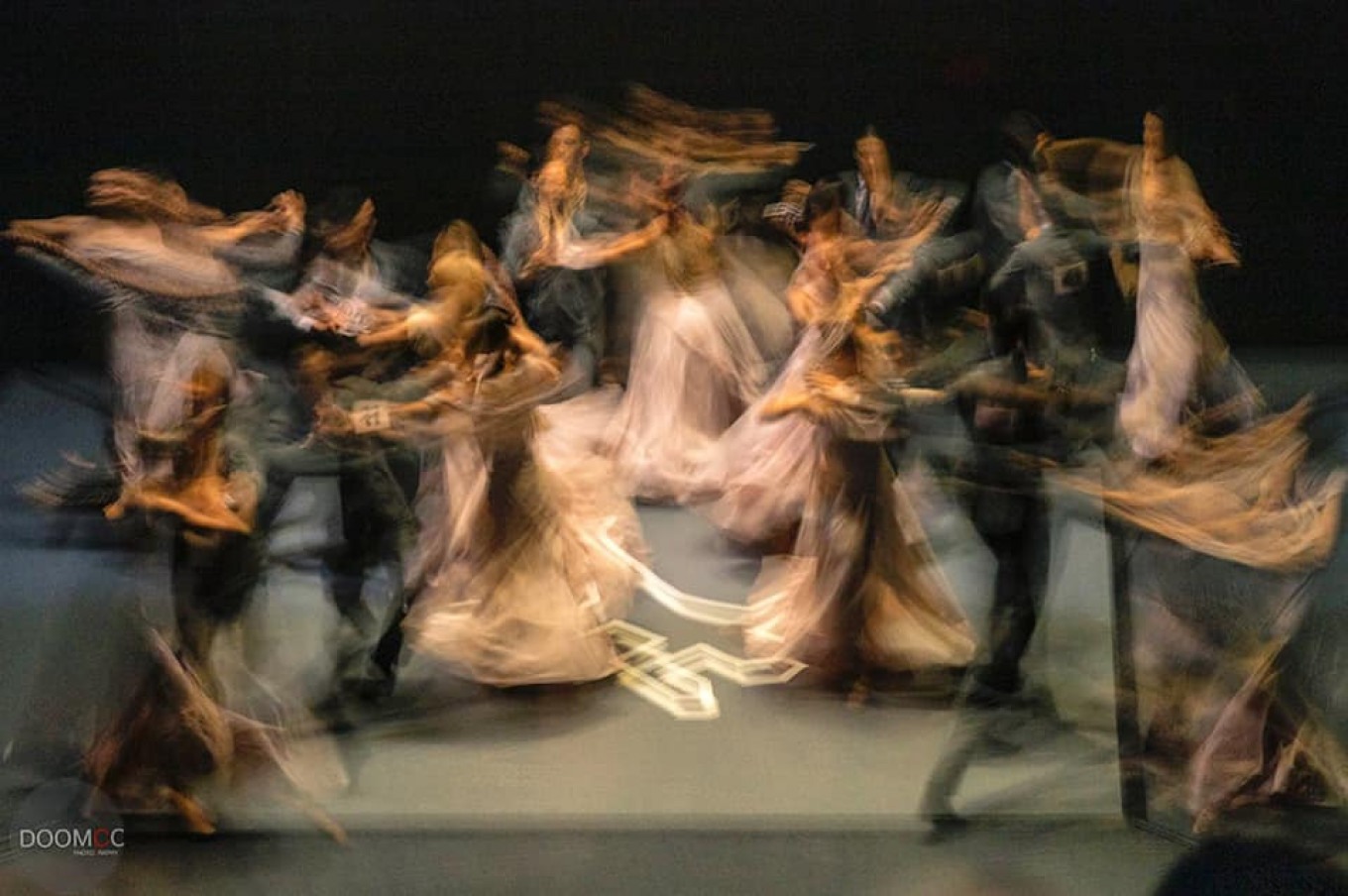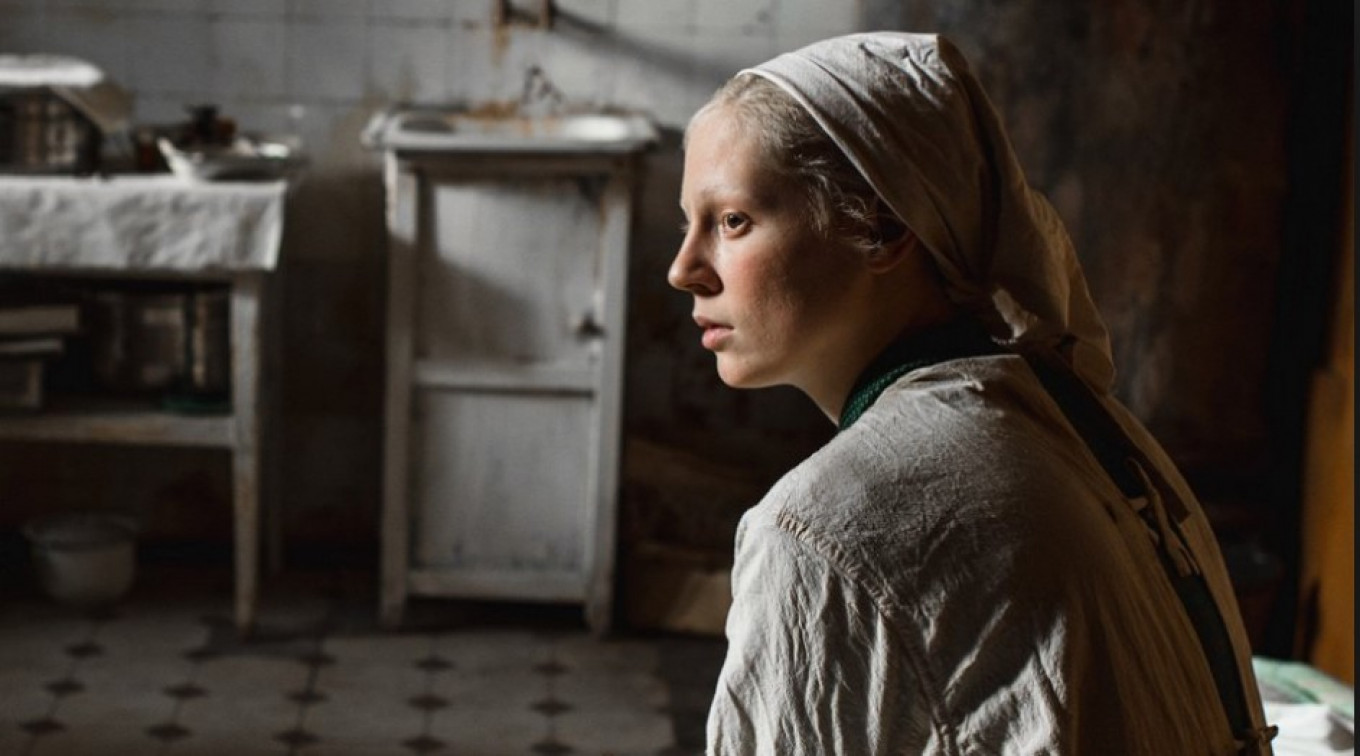Cultural life in the Russian capital usually begins to slow down a bit in the summer, as theater troupes head out on tour, museums start gearing up for the autumn openings, and movie theaters are filled with Hollywood blockbusters.
You wouldn’t know it by the premieres and openings at the end of last week.
On the stage of the Bolshoi Theater, a new ballet created especially for ballerina Svetlana Zakharova had its premiere over the weekend. The ballet, “Gabrielle Chanel,” dedicated to the life of the famous French fashion designer, was choreographed by Yuri Possokhov, with music by composer Ilya Demutsky and a libretto by Alexei Frandetti, who also directed the piece. It was produced by the company MuzArts with costumes made in the Bolshoi Theater studios based on designs from the House of Chanel. Unfortunately for ballet lovers who couldn’t get tickets, the performance moves from Moscow to London.
Across town at the Meyerhold Theater Center, Ballet Moscow celebrated their 30th anniversary with a premiere by choreographer Jeroen Verbruggen entitled “Dance Hall,” an hour-long ballet that harkens back to the dance marathons of the 1920s. Happily, this ballet will be performed on June 29 and July 7, and tickets are still available here.
 Dancing in “Dance Hall” Facebook, Natalie Doomco
Dancing in “Dance Hall” Facebook, Natalie DoomcoOn the visual arts front, two massive, very significant and utterly different exhibitions opened at the city’s two main art museums.
The Pushkin Museum of Fine Arts is celebrating Sergei Shchukin, the brilliant collector with an eye for artistic genius, whose enormous collection of late 19th and early 20th European art made the basis of the Pushkin Museum permanent collection after it was expropriated by the Soviet government. For many decades his name and deed were largely unknown to Soviet art-lovers who admired works by Matisse, Monet, Picasso, Cezanne, Gaugin and many other European painters in the Hermitage Museum, the Pushkin Museum, and many museums around the country.
The show displays more than 450 works of art: paintings, graphics, sculptures and objects d’art as well as a wealth of archival materials. The show “Shchukin: Biography of a Collection” will run in the main building simultaneously with the show “Selected Works from the Fondation Louis Vuitton Collection,” held in the Gallery of 19th and 20th Century European and American Art next door, so that art lovers can consider how collecting has changed and remained the same over the last century.
More information about the shows can be found on the museum site.
Across the river the New Tretyakov Gallery has inaugurated their enormous new exhibition space with an extraordinary show. The exhibition, which takes in what used to be part of the Union of Artists and is now called the West Wing, is called “Free Flight.” It is a joint project by the Tretyakov and the Anatoly Zverev Museum.
The show is a trilogy dedicated to the works of film director Andrei Tarkovsky and the nonconformist artists of the 1960-1980s. It is an expanded version of three shows organized by the AZ Museum that took place in Moscow and Florence, Italy since 2016.
It begins with the Thaw period: Tarkovsky’s 1966 film “Andrei Rublyov” and works by Dmitry Plavinsky called “Breakthrough to the Past.” It then moves into the 1970s with “Foresight” which presents stills and production shots from Tarkovsky’s film “Stalker” (1979) with paintings by Pyotr Belenok from the 1970s, all of which show people flung into the air by some unknown, unidentified, barely seen catastrophe. These works seem to anticipate what was to come, here shown in photographs from Chernobyl done by Viktoriya Ivleva in 1986, immediately after the explosion.
The third part of the show was first held in Florence last summer. Called “New Flight to Solaris,” it refers, in part, to Tarkovsky’s “Solaris,” a space station over a mysterious watery planet that makes people’s memories come to life. The film space station had been filled with works of art by the old masters; this “Solaris” is filled with works by some of the best of the Soviet non-conformist artists.
For more information, see the museum site here.
In movie theaters, the film “The Beanpole” by Kantemir Balagov opened at the end of last week. The film tells the story to two young women soldiers who return to Leningrad after the war is over. The women are traumatized and unable to acclimate to post-war life, particularly in a city that had been under siege and lost almost half its population. Balagov won the “Un Certain Regard” Best Director Award and the FIPRESCI Prize for Best Film in the “Un Certain Regard” section at the Cannes Film Festival. It is playing in Moscow at the Pioner Theater with English subtitles.
 “The Beanpole” Facebook
“The Beanpole” Facebook





